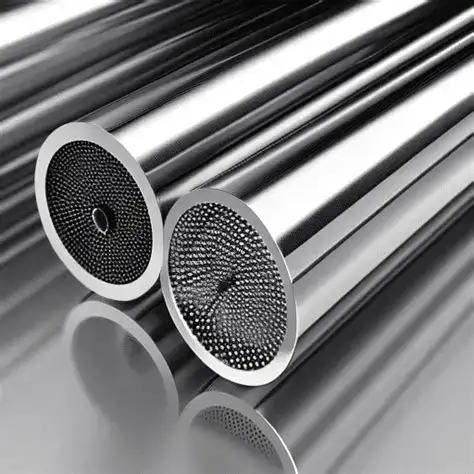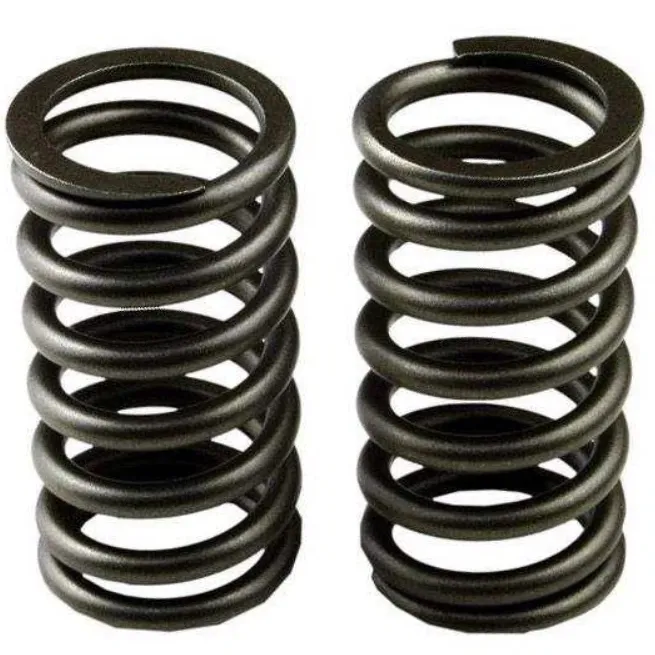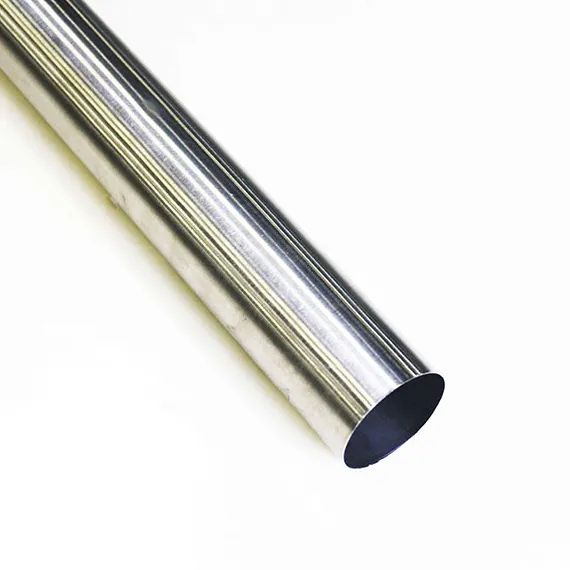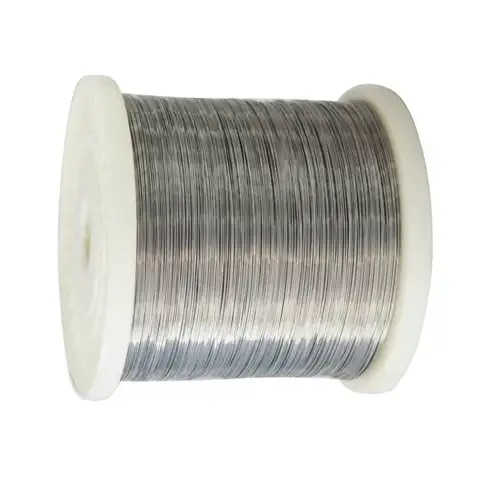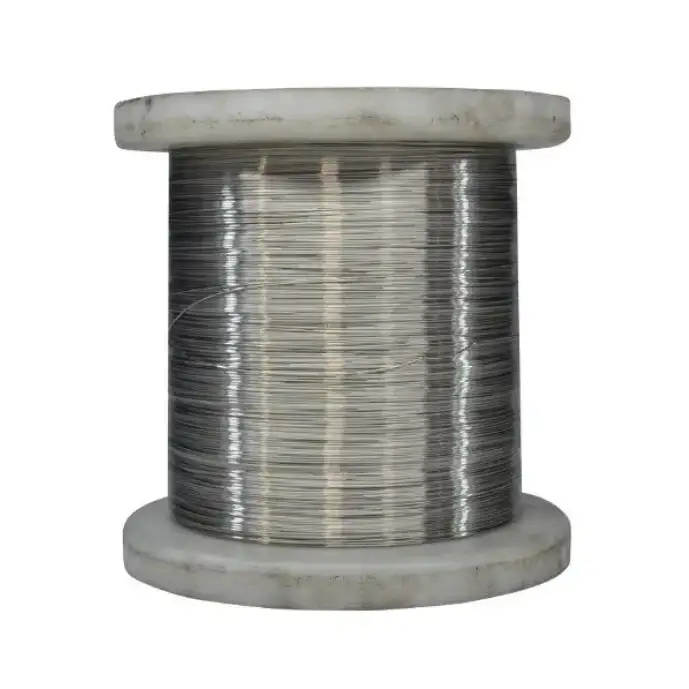Inconel Alloy 718 (UNS N07718) es una aleación a base de níquel endurecida por precipitación con ~50-55% de Ni, 17-21% de Cr, 4,75-5,5% de Nb+Ta, 2,8-3,3% de Mo y trazas de Ti y Al. Estos elementos forman dos fases de refuerzo clave, γ′ y γ″, que ofrecen un rendimiento mecánico excepcional.
especificación completa
| Categoría | Propiedad | Valor / Descripción | Notas |
|---|---|---|---|
| Composición química | Níquel (Ni) | 50,0-55,0% | Elemento base |
| Cromo (Cr) | 17,0-21,0% | Resistencia a la oxidación/corrosión | |
| Hierro (Fe) | Saldo | ||
| Niobio (Nb) + Tántalo (Ta) | 4,75-5,50% | Fortalecimiento primario (forma γ″ precipitados). | |
| Molibdeno (Mo) | 2,80-3,30% | Refuerzo de la solución sólida | |
| Titanio (Ti) | 0,65-1,15% | Forma γ′ precipitados | |
| Aluminio (Al) | 0,20-0,80% | ||
| Carbono (C) | ≤0.08% | ||
| Manganeso (Mn) | ≤0.35% | ||
| Silicio (Si) | ≤0.35% | ||
| Azufre (S) | ≤0.015% | ||
| Cobre (Cu) | ≤0.30% | ||
| Propiedades físicas | Densidad | 8,19-8,24 g/cm³ | |
| Intervalo de fusión | 1260-1340°C | ||
| Conductividad térmica (RT) | 11,2-14,7 W/m-K | Aumenta con la temperatura | |
| Coeficiente de dilatación térmica (20-100°C) | 11,8-13,9 μm/m-°C | ||
| Módulo elástico (RT) | 199-214 GPa | ||
| Resistividad eléctrica | 1,18-1,25 μΩ-m | ||
| Propiedades mecánicas (RT, recocido) | Resistencia a la tracción (UTS) | ≥965 MPa | Mínimo especificado |
| Límite elástico (0.2% Offset) | ≥550 MPa | ||
| Alargamiento (A5) | ≥30% | ||
| Dureza | ≤363 HB (Brinell) / HRC 36-42 | Alcance típico | |
| Rendimiento a altas temperaturas | Límite elástico (650°C) | ≥620 MPa | Estado endurecido por la precipitación |
| Resistencia a la ruptura por tensión (650°C, 1000h) | ~70 MPa | ||
| Límite de servicio a corto plazo | 800°C | Resistencia a la oxidación hasta 1000°C | |
| Límite de servicio a largo plazo | -253°C a 650°C | ||
| Tratamiento térmico | Solución Tratamiento | 955-1020°C, enfriamiento rápido (agua/aire) | Disuelve las fases secundarias |
| Endurecimiento por precipitación (envejecimiento) | 718-760°C durante 8-16h, enfriar al aire | Optimiza los precipitados γ″/γ′. | |
| Características principales | Resistencia a la corrosión | Excelente resistencia a la oxidación, picaduras, agrietamiento por corrosión bajo tensión (SCC) en cloruros/sulfuros; buen comportamiento en entornos ácidos/nucleares. | |
| Soldabilidad | Excelente (TIG, haz de electrones, soldadura por resistencia) | Bajo riesgo de agrietamiento posterior a la soldadura | |
| Maquinabilidad | Difícil (requiere herramientas de carburo, bajas velocidades de corte) | Alto índice de endurecimiento por deformación | |
| Normas internacionales | Bar/Rod | ASTM B637, AMS 5662/5663/5664 | |
| Hoja/tira | ASTM B670, AMS 5596 | ||
| Piezas forjadas | ASTM B564, AMS 5662 | ||
| Tubos | AMS 5589/5590 | ||
| Aplicaciones | Aeroespacial | Álabes de turbina, cámaras de combustión, elementos de fijación | |
| Nuclear | Componentes del núcleo del reactor, elementos combustibles | ||
| Petróleo y gas | Herramientas de fondo de pozo, válvulas, bombas (conforme a NACE MR0175) |
Notas sobre variabilidad y pruebas
-
Condición Dependencia: Las propiedades mecánicas (especialmente la resistencia/ductilidad) varían con la forma del producto (barra, chapa, forja) y el tratamiento térmico (recocido vs. envejecido). Los valores indicados son los mínimos para material recocido, a menos que se especifique lo contrario.
-
Datos de alta temperatura: La resistencia disminuye por encima de 650°C; los valores de rotura por tensión son los típicos de un material endurecido por precipitación.
-
Normas de ensayo:
-
Tracción: ASTM E8
-
Dureza: ASTM E10 (Brinell), E18 (Rockwell)
-
Fluencia: ASTM E139
-
-
Variantes nucleares/de grado: Controles de composición más estrictos (por ejemplo, bajo Co, B) para aplicaciones nucleares (ASTM B637 Grado SB-637N).
comparación global de precios
| Formulario | Región | Gama de precios (USD/kg) | Fuente / Notas |
|---|---|---|---|
| Placa/Hoja | China | $36-40/kg | Placa Inconel 718, MOQ 50 kg |
| India | ≈$35,6/kg (~₹2.698) | Placa (2,5 mm): ₹2,698 (USD 35.55) | ||
| EAU | $40-50/kg (FOB Mumbai) | Precios de chapa/placa/bobina | ||
| Bar/Rod | China | $20-35/kg | Barra redonda, MOQ 10 kg | |
| EAU | $40-55/kg | Precio de la barra | ||
| Bobina/Tira | China | $22-28/kg | Precio bobina/tira/barra | |
| Alambre | China | $11,2-45/kg | Alambre de muelle $30-45/kg; algunos a $11,23-17,41/kg | |
| Global | $20-50/kg | Alambre de soldadura 718, MOQ ~20 kg |
📌 Principales observaciones
-
Precios de las placas/hojas suelen oscilar entre $36-40/kg en China, $35,6/kg en la India, con ofertas FOB más bajas (tan bajas como $10/kg) en pequeños lotes de proveedores indios.
-
Bar/Rod los precios varían más: $16-35/kg, influida por el tamaño del pedido y la calidad del acabado.
-
Bobina/Tira tiene un precio de $22-28/kg de proveedores chinos.
-
Alambre muestra la gama más amplia: de $11,2/kg (alambre de muelle a granel) hasta $45/kg (alambre de soldadura de pequeño lote).
¿Por qué elegir la aleación 718?
Ofrece una combinación poco común de alta resistencia a la tracción y a la corrosión. El mecanismo de endurecimiento por envejecimiento le confiere un sólido rendimiento mecánico, mientras que su soldabilidad y estabilidad entre temperaturas criogénicas y elevadas le confieren una versatilidad única.
Fabricación y conformado Aleación 718
Funciona bien en fundición, forja, mecanizado, conformado en frío y en caliente. El tratamiento térmico consiste en:
-
Solución: recocido a 1.700-1.850 °F, envejecimiento a 1.325 °F durante 8 h + 1.150 °F durante 10-18 h.
-
Variante de alta temperatura: recocido a 1.900-1.950 °F, envejecimiento a 1.400 °F durante 10 h + 1.200 °F durante 20 h .
Comparación con aleaciones similares
| Propiedad | Aleación 718 | Inconel Aleación 625 | Aleación Inconel X-750 |
|---|---|---|---|
| Rendimiento @ RT | ≈ 1.380 MPa | ≈ 550 MPa | ≈ 1.290 MPa |
| Resistencia a la fluencia | Hasta 700 °C | Hasta 982 °C | Hasta 800 °C |
| Facilidad de soldadura | Excelente | Excelente | Requiere envejecimiento |
| Resistencia a la corrosión | Excelente | Excelente | Muy buena |
Prácticas de soldadura
Soldar utilizando relleno a base de Ni (por ejemplo, ERNiCr-3). Precalentamiento ~150-200 °C, paso intermedio ≤300 °C, seguido de solución completa + envejecimiento para restaurar las propiedades. La resistencia a la fisuración es excelente debido a una respuesta de precipitación más lenta.
Preguntas frecuentes
1. ¿Qué tratamiento térmico requiere el Inconel 718 para obtener una resistencia óptima?
El Inconel 718 se refuerza mediante un proceso de envejecimiento en dos fases tras el recocido en solución. Normalmente, la aleación se trata en solución entre 1.700-1.850 °F, después se envejece a ~1.325 °F durante 8 horas, seguido de ~1.150 °F durante 10-18 horas. De este modo se desarrollan los precipitados γ′ y γ″ que proporcionan una alta resistencia a la tracción y a la fluencia hasta ~700 °C..
2. ¿Se puede soldar la aleación 718 sin perder prestaciones mecánicas?
Sí, es posible. Inconel 718 es conocido por su excelente soldabilidad. Se recomienda la soldadura por arco de gas-tungsteno (GTAW) y la soldadura por arco de gas-metal (GMAW) con metales de aportación adecuados a base de níquel (por ejemplo, ERNiCr-3). Un tratamiento completo de envejecimiento posterior a la soldadura es esencial para restaurar las propiedades de endurecimiento por precipitación y minimizar las anomalías microestructurales. .
3. ¿Cuál es la temperatura máxima de servicio y la resistencia ambiental del Inconel 718?
El Inconel 718 mantiene su resistencia a la tracción y a la fluencia hasta ~700 °C (1.300 °F) y resiste la oxidación en zonas de temperaturas aún más elevadas. También se comporta bien en entornos corrosivos y cargados de cloruros, por lo que es adecuado para aplicaciones marinas, de petróleo, gas y vapor..
4. ¿Cómo afecta el mecanizado o la soldadura a su vida a fatiga?
El Inconel 718 soldado presenta una vida a la fatiga reducida -hasta 30% menos en fatiga de ciclo alto y >50% en condiciones de ciclo bajo- en comparación con el material base. Las causas microscópicas más comunes son la tensión residual, la segregación de la fase Laves y las zonas afectadas por el calor. A pesar de ello, los componentes tratados térmicamente después de la soldadura mantienen un rendimiento adecuado durante su ciclo de vida para aplicaciones críticas.
5. ¿Es el Inconel 718 no magnético?
Sí, el Inconel 718 es amagnético tanto en estado recocido como endurecido por precipitación, lo que es fundamental para aplicaciones en las que se requiere neutralidad magnética, como en la instrumentación aeroespacial y los componentes criogénicos.

